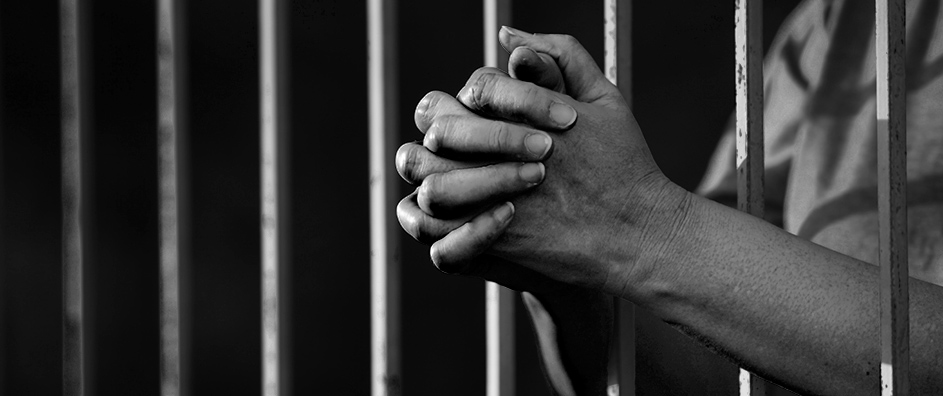Within the rich tapestry of the Baha’i Faith, the intersection of spirituality and resilience emerges prominently, particularly in the context of suffering and indignity. “Prayers from a Prison: How to Face Life’s Indignities” serves as a profound examination of the human condition, delineating how one might respond to adversity with grace and composure. How does one maintain equanimity amidst turmoil and tribulations? This inquiry underpins the essence of Baha’i teachings on suffering and resilience.
The Baha’i perspective posits that trials and tribulations are inherent to the human experience; they are, in fact, opportunities for spiritual and moral development. The foundational belief in the inherent nobility of humanity underscores the necessity to rise above life’s indignities and pursue a path of growth. Individuals are thus encouraged to adopt a mindset where challenges catalyze transformation rather than deter progress.
As one prepares to confront the inevitable challenges of existence, it is crucial to acknowledge the emotional and psychological toll that indignities can take. Experiencing injustice or marginalization often leads to feelings of despair, anger, and hopelessness. Baha’i teachings assert that such emotions are natural, yet they must be navigated judiciously. Transformative prayer emerges as a salient tool in this journey, allowing individuals to reconnect with their inner strength and summon the courage to endure.
The act of prayer, especially in moments of vulnerability, encourages introspection and fortitude. It is a means by which one can articulate grievances, seek solace, and cultivate a spirit of forgiveness—both towards oneself and others. Baha’is believe that engaging in heartfelt supplication elevates one’s consciousness, enabling a profound connection with the Divine and fostering resilience in the face of adversity.
Additionally, the concept of acceptance plays a pivotal role in Baha’i teachings. Accepting one’s circumstances does not equate to resignation; rather, it implies a conscious choice to embrace reality while striving for change. This nuanced understanding is essential when grappling with indignity. Acceptance allows individuals to disentangle themselves from feelings of victimization, thus enabling a proactive approach towards personal and communal growth.
Moreover, the teachings emphasize the importance of community support during times of distress. The Baha’i community acts as a sanctuary where individuals can find solace, share experiences, and uplift one another. Engaging with others who share similar struggles fosters a sense of belonging and solidarity. In essence, this communal aspect serves as a bulwark against feelings of isolation that often accompany life’s indignities.
Furthermore, embracing a mindset focused on selfless service is crucial. Baha’i scriptures encourage adherents to redirect attention from their own grievances towards serving others. This self-transcendence not only alleviates personal suffering but also cultivates an environment of compassion and empathy. Acts of kindness and generosity can dramatically shift one’s perspective, transforming indignity into a catalyst for positive action.
Another essential component of navigating life’s trials is the practice of forgiveness. Forgiveness is particularly emphasized within Baha’i teachings, serving as an antidote to the corrosive effects of resentment and bitterness. By forgiving those who have caused hurt, individuals emancipate themselves from the shackles of anger, allowing for emotional healing and spiritual liberation. This act is not solely for the benefit of the transgressor but is fundamentally a gift to oneself.
Additionally, we should consider the significance of perspective in this contemplative journey. In Baha’i thought, applying a broader lens to life’s experiences can alter one’s emotional landscape. Understanding that life’s challenges can be transient and that they contribute to personal growth is profoundly liberating. Engaging with philosophical inquiries—such as “What lessons can be gleaned from this experience?”—can propel individuals toward enlightenment and understanding.
Lastly, reflection on the ultimate purpose of life also informs Baha’i responses to indignity. The belief that existence is a phase of spiritual evolution imbues trials with meaning. When indignity is viewed as a vehicle for spiritual advancement, individuals are better equipped to confront their suffering with bravery and poise. This creates a robust framework through which one can navigate adversity, ultimately cultivating a greater reliance upon divine assistance.
In conclusion, “Prayers from a Prison: How to Face Life’s Indignities” encapsulates the essence of Baha’i teachings on resilience and spiritual fortitude. Through a combination of prayer, acceptance, community support, selfless service, forgiveness, perspective, and understanding life’s ultimate purpose, individuals are empowered to transcend indignities. The path may be fraught with challenges, yet it is precisely within these trials that the opportunity for profound personal and spiritual transformation lies waiting to be embraced. How does one respond when faced with life’s indignities? The answer lies in the embrace of these teachings, a quest for inner strength, and an unwavering commitment to nurturing the soul amidst adversity.
